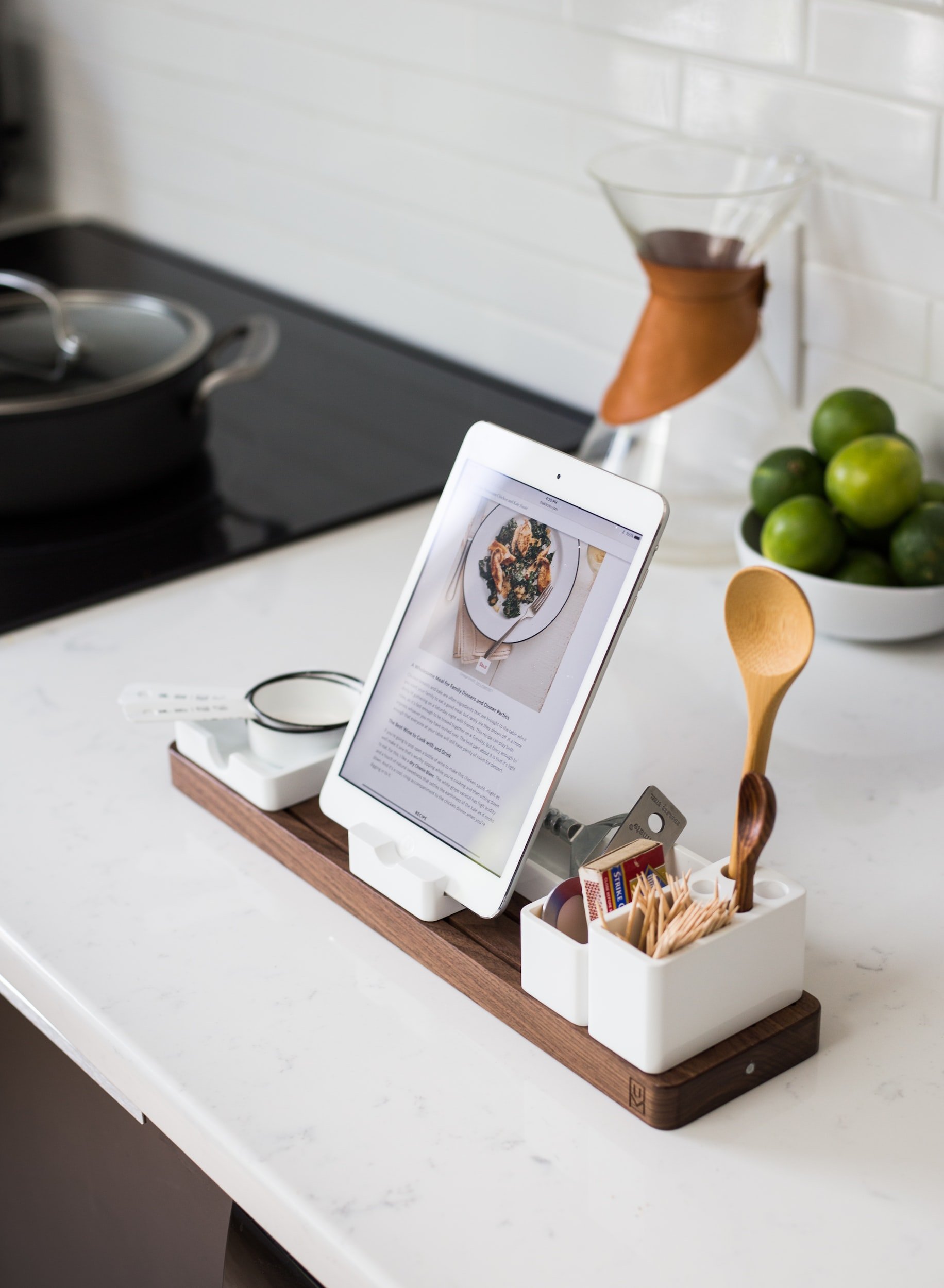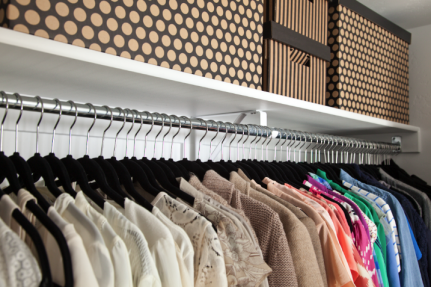10 ways to be more organized and efficient
/Being organized can help you be more efficient and productive in your personal life, as well as at work. There's no one-size-fits-all way to be organized—you just have to find what works best for you. Here are some tips that might help you get started:
Use a timer to pace yourself.
There are many ways to use a timer to be more efficient and organized. If you're working on a project, set the timer for 20 minutes, and make sure you focus on the task at hand. When it goes off, take a break!
If you're trying to get started on something, set a 10-minute timer so that after 10 minutes, you'll know if you're going to keep working or need to stop and do something else.
If your work requires multiple steps (like getting ready), set a kitchen timer for cooking an egg or making toast—this will help keep track of each step without having to stop everything else once everything is done cooking/toasting!
Have a timetable for which you allocate specific tasks for specific times of the day, instead of trying to do everything all at once.
Time blocking is a simple way to make your day more efficient, and it can work for both personal and business tasks. There are many different ways to time block, but the general idea is to allocate specific times for specific tasks. Using this method, you'll be able to stay focused on one task without distraction, which will lead to greater productivity and less stress overall.
For example: If you want to write an article by 2 pm today (and get paid), but find yourself wasting time on social media instead of writing—time blocking can help! Set aside two hours during your workday in which all of your attention is dedicated to writing that article; no checking Facebook or other social media sites is allowed during this period! This allows you only one hour per day when it comes down right now because all other distractions have been eliminated from existence until after those two hours pass by."
Organize your workspace so that everything you need is within easy reach.
The first step to organizing your workspace is to make sure you have everything you need within easy reach. Don’t be afraid of clutter—it’s okay if there are piles of papers on your desk, as long as they don’t get in the way. However, if something not related to the task at hand has no place other than right next to it, move it elsewhere!
Next, consider how much time and effort it will take for someone else (like a coworker) to find something in your workspace once they need it. If a coworker knows where everything is located, they can access it quickly without needing extra help from you. If not... well, I'm sure you can figure out what happens then!
Set up a system for managing clutter and keeping your workspace tidy.
When you're trying to get organized, it's important to have a system in place that works for you. Now, what does working for you mean? It means that your system is easy to maintain and change. You should be able to add new tasks or remove old ones without much thought or effort. Your system should also be easy to explain so others can understand how it works—this way, when someone new joins your team or project, they'll know how things are run with minimal confusion (and possibly resentment).
Developing a good organizational system isn't just about being tidy; it's also about creating an environment where work can thrive by streamlining processes into efficient habits. But remember that these habits will evolve over time as the needs of your business change: ensure that any changes made are agreed upon by everyone involved before making them permanent.
Have an "in" box for incoming materials and an "out" box for things that need to be processed or filed away.
Use an inbox and outbox.
Keep all electronic files in a single folder on your computer or external hard drive and store physical files in labeled file folders or a binder.
Use a calendar to manage appointments, meetings, deadlines and other time-sensitive items that aren't filed away elsewhere—make sure it's available on your phone as well so you can check dates while on the go!
Make sure to take breaks from your work. Get up periodically and walk around, get some fresh air, do something different.
Make sure to take breaks from your work. Get up periodically and walk around, get some fresh air, do something different.
How often? As often as you need to feel refreshed. You won't know how much time you need until you start taking breaks regularly, but individual needs vary wildly. Some people can go for two hours without needing a break; others may need them every 20 minutes or so. Experiment with different amounts of time between breaks until you find what works best for you!
What should I do during my break? This is up to the individual—just make sure it's something unrelated to work so that your brain has time off from thinking about anything related to being organized and efficient (or any other task).
How should I avoid getting distracted? If it helps, put away all technology during this time (or at least turn off any alerts or notifications), so that no one can reach out and grab your attention unexpectedly. Also, try not to read any emails or messages unless they're urgent; just enjoy yourself by doing anything else!
Related: The importance of taking a break and how it can help with motivation and focus
Plan your day beforehand, first thing every morning, so that you know what needs to be done as soon as possible (and by whom) and what can be put off until later in the day or on another day entirely.
Planning your day in advance is one of the best ways to be more organized and efficient.
Planning your day in advance will help you prioritize tasks, avoid procrastination, and avoid multitasking. It's also a great way to start each morning off on the right foot.
First thing every morning (or last thing at night), sit down with a pen and paper or open up your computer calendar and write down what needs to get done today, who will do it, when they'll do it—and whether there are any exceptions to these plans that need addressing immediately.
This may seem like a lot of work for something so simple-sounding—but if you think about how much time we waste by putting off things until later when they could have been done sooner or doing things out of order because we don't know what else comes next (or worse yet: not doing anything at all), then it starts making sense!
Do not procrastinate! Remember the old saying, "Procrastination is the thief of time."
Do not procrastinate! Remember the old saying, "Procrastination is the thief of time."
Procrastination is not just a bad habit; it can also be a symptom of a deeper problem. If you are regularly putting off important tasks or ignoring your responsibilities, this may be due to depression (or another mental health issue) and should be addressed by seeking professional help.
Don't be disorganized with the small things; make effort even with things like brushing your teeth, washing the dishes, and taking out the trash. Small habits like these can spread over into other areas of life if neglected.
Don't be disorganized with the small things; make effort even with things like brushing your teeth, washing the dishes and taking out the trash. Small habits like these can spread over into other areas of life if neglected.
Don't procrastinate. Take care of tasks as they come up or have a schedule that you stick to for cleaning, cooking etc. If you don't want to do something, then delegate it to someone else or set up a system so that others will do it for you (like hiring a house cleaner).
Don't let small things pile up! It's better for one big task than five little ones added together because it takes more energy away from more important things in life such as family/friends/traveling/etc.. If something takes less than 5 minutes but still needs doing then just get it done straight away! If not then write yourself a note on an electronic calendar so that when reminded later on you will remember what has been left undone before!
Don't let paper pile up! Try not to touch paper more than once to process it (either accepting it as something that must be done now, or rejecting it as something that can wait until later).
One of the most effective ways to be more organized and efficient is to treat paper as a to-do list. Don't let it pile up! When you have a lot of paper, get rid of it by treating each piece as an individual task that must be completed before moving on. If there's too much for you to handle in one sitting, then break up your task into smaller chunks or delegate some items to other people who can help out.
Before going through papers and deciding what needs action, set aside some time for yourself—even if this is just 15 minutes at lunchtime. This will allow you not only free up space on your desk but also give your brain time off from thinking about work so that when it's back at its desk later (or in bed), it'll be more alert and ready for whatever comes next!
Being organized will benefit you both personally and professionally
Being organized is something that can be beneficial for both your personal and professional life. Organization means being in control of your schedule, and having the ability to manage it effectively. Being organized will help you get more done because you'll have a clear plan of how to spend your time and stay on top of things. It also helps reduce stress, which can be overwhelming when you're unorganized!
Being less stressed out has been shown to increase productivity, as well as creativity (source). Being more productive means having more free time. And when we're not stressing about things then we can actually enjoy ourselves!
We hope that you've found these tips useful. The most important thing is to remember that organization doesn't happen overnight and it's not easy, but it's worth the effort!
Copyright © 2022 by Janine Morales, Professional Home and Business Organizer in San Diego and surrounding areas.














